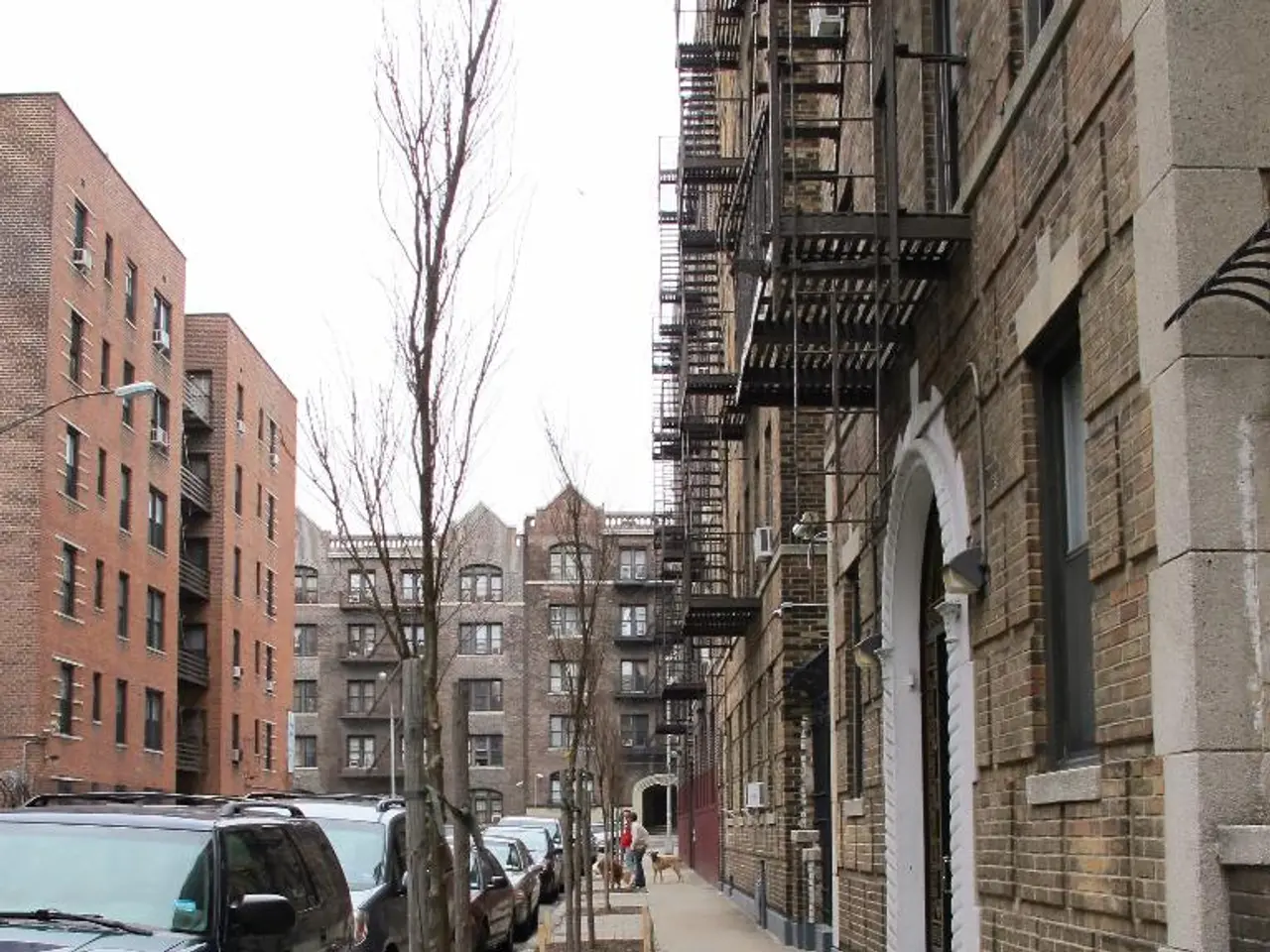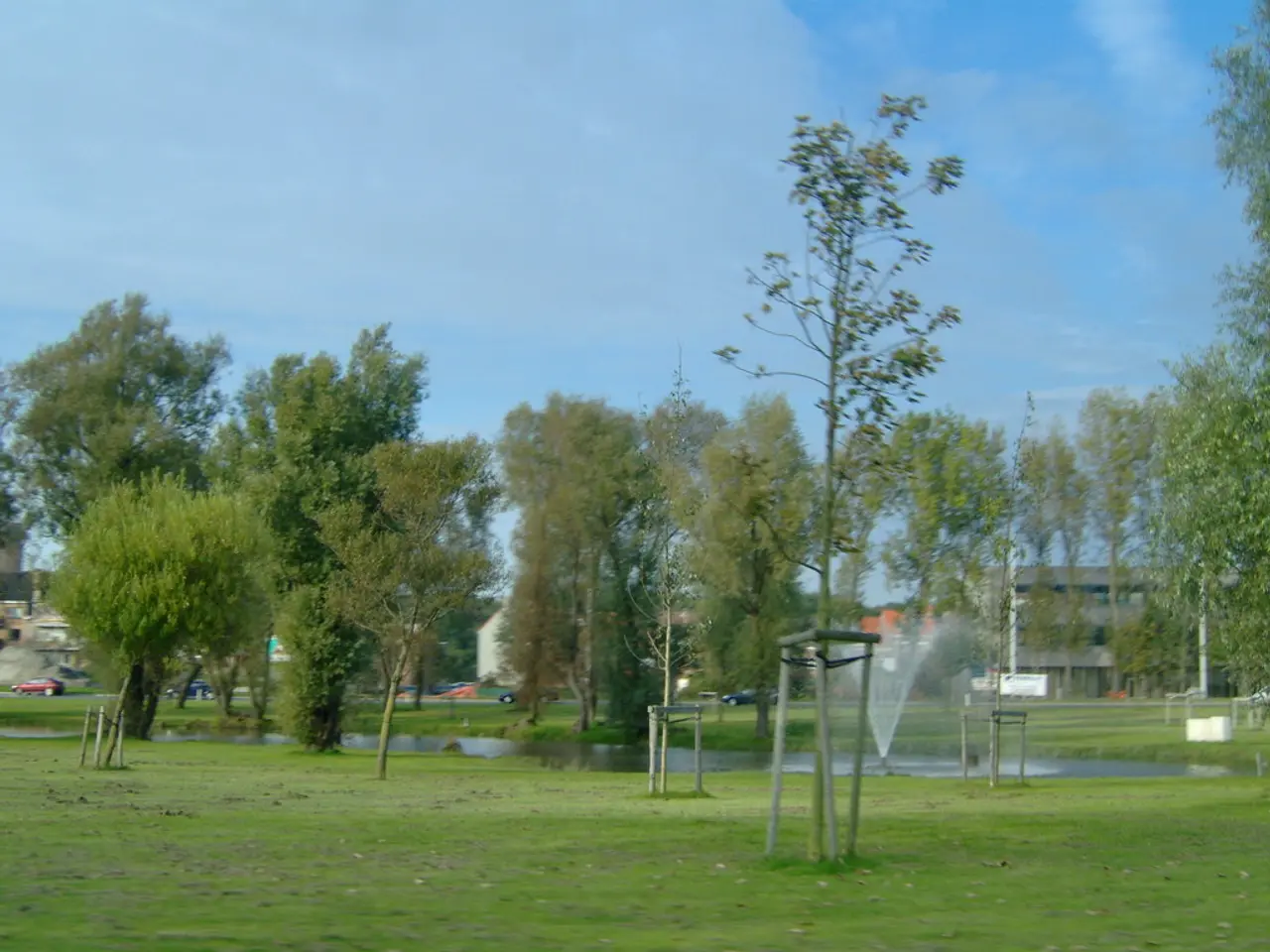Construction pace urged to accelerate by Housing Alliance 2.0
In the heart of Berlin, the Alliance for Housing Construction and Affordable Housing gathered at the iconic Red City Hall, with Kai Wegner, the city's governing mayor and a member of the CDU political party, leading the discussion. The meeting marked the renewal of the alliance, which has been in operation since June 2022 and shows no signs of being abandoned.
The housing shortage in Berlin, as emphasised by Wegner, is immense. The city predicts a need for around 220,000 additional apartments by 2040, and the goal of constructing 20,000 apartments per year remains unchanged. However, the originally targeted 60,000 apartments have not been achieved in the past three years, with only approximately 50,000 apartments completed during this period.
To combat this, Berlin is embarking on several initiatives. One such initiative is the development of new urban quarters, with the Havelufer quarter offering over 1,700 apartments, including affordable and innovative housing options such as co-living spaces and senior-friendly apartments. This project highlights the focus on sustainability and community living.
Policy initiatives are also being implemented. For example, Berlin's Greens party has proposed a new rental law aimed at ensuring that landlords rent to welfare recipients, which could improve access to housing for those in need. However, this proposal has been met with skepticism by some who view it as overly restrictive.
Accelerating construction is another key focus. Germany's "Acceleration Act" aims to streamline construction permits and reduce bureaucratic delays in Berlin, which is crucial for meeting ambitious construction targets. The German federal government has also allocated significant funds for housing construction nationwide, with a focus on affordable and environmentally friendly housing.
Despite these efforts, achieving the goal of constructing 20,000 apartments per year in Berlin is challenging due to factors such as rising material costs, regulatory uncertainty, and ongoing housing market pressures. Maren Kern from the BBU association has called for a "Housing Alliance 2.0" to address these challenges and implement effective policies to sustainably address the housing shortage.
Improving construction efficiency and affordability are key components in reaching this target. The specific strategies to reach this goal are not yet detailed in available reports, but the focus on new construction and the renewal of the Housing Alliance suggest a commitment to addressing Berlin's housing shortage.
The housing shortage in Berlin, a pressing issue that Kai Wegner emphasized, requires immediate attention. General-news outlets have reported on the proposal by Berlin's Greens party to implement a new rental law, aimed at improving access to housing for those in need, which, while ambitious, has faced skepticism due to concerns about being overly restrictive. Politics, in the form of policy initiatives and the renewal of the Housing Alliance, are being leveraged to combat this issue, with the goal of constructing 20,000 apartments per year remaining in sight.






